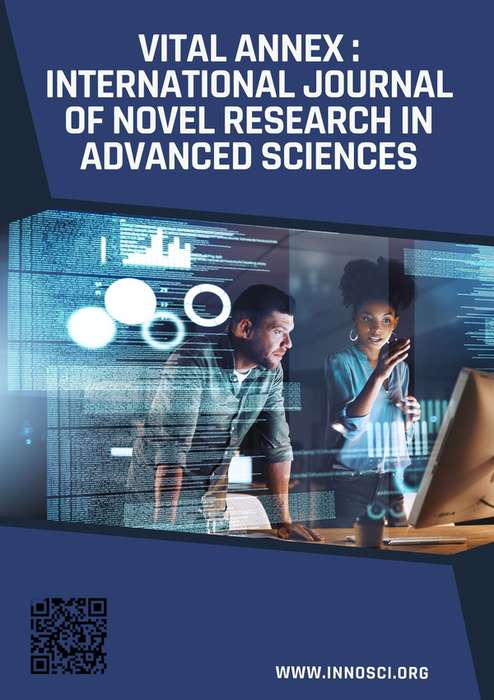The Impact of Artificial Intelligence Applications on Strategic Vision: An Applied Study on Najaf International Airport and Zain Iraq Telecommunications Company
Keywords:
Strategic Vision, Artificial Intelligence, Organizations, Iraq, Sustainable Development, Najaf International Airport, Zain Iraq Telecommunications CompanyAbstract
This study will try to determine the influence of applications of artificial intelligence (AI) on the strategic vision of Iraq organizations like the case of Najaf International Airport and the Telecommunications Company Zain Iraq. With the rapid emergence of AI technologies, the use of these technologies in the current age becomes a pressing need in order to remain competitive and simplify strategic operations in organizations. In light of the foregoing, the current study aims at critically analyzing AI corporation as an independent variable and analyzing its reflections in setting and implementing the strategic vision corporation as a corporation's dependent variable and the institutional challenges in Iraq in this respect and the possibility that can be exploited for institutional performance to achieve sustainable development aims. The current study relies on descriptive-analytical methodology in order to understand the correlation among AI and strategic planning. Quantitative and qualitative data were conducted through distributing electronic questionnaires among executive bosses and technical specialists, besides document and formal report analysis issued from the two studied corporations. This analytical paradigm enriches the ability to yield accurate observations of the contribution of AI technologies in strengthening the precision of decision-making, predictability, and flexibility of institutions to respond to market and technological change. The findings revealed that the application of AI served in deepening the accuracy of decision-making by 80%, predictability by 76% and adaptability of institutions by 69% through confirmed playing of the essential role by the technologies in facilitating institutional approaches. Nevertheless, the research defined essential challenges that deter successful implementation including lack of low technical skills and high operational expense, which signify a need in developing the well-settled policies in order to defeat the challenges and facilitate AI uptake among Iraqi institutions. From these findings, the research advises the value of investing in developing the skills of the workers through professional training programs, upgrading the digital infrastructure in order to sustain the digital transformation, embracing the open-source AI solution in order to cut costs, and building the regulatory policies in order to facilitate technological innovation. Through these advice, the Iraqi organizations shall enhance the capacity to efficiently adopt the AI technologies and subsequently widen their strategic vision along with sustaining the sustainable growth in the evolving business ecosystem.
References
M. Al-Khazami, “The Role of Artificial Intelligence in Social and Human Sciences,” Seminar Journal, vol. 1, no. 2, Dec. 2023.
Y. Hussein, “The Impact of Artificial Intelligence Applications on Scientific Research Production in Universities,” Journal of the Higher Institute for Qualitative Studies, vol. 4, no. 11, 2024.
N. Hussein, “Strategic Planning for Human Resources as an Approach to Strengthening Competitive Competencies – An Applied Study on Pharmaceutical Companies within the Arab Republic of Egypt,” M.S. thesis, Dept. of Business Administration, Benha Univ., Egypt, 2011.
S. Elias, “Competitiveness and Competitive Advantage in Business Organizations,” Journal of Research and Development Studies, Mohammed Boudiaf Univ., M’sila, Algeria, vol. 8, no. 1, 2021.
Saudi Data and Artificial Intelligence Authority, Artificial Intelligence Strategy, 2nd ed., Apr. 2024.
Arab Council for Social Sciences, The Role of Artificial Intelligence in Advancing Scientific Research and Educational Institutions, 2022.
Arab Gateway for Artificial Intelligence, National Artificial Intelligence Strategy in Iraq, 2023.
Arab Academy for Banking and Financial Sciences, Challenges of Implementing Artificial Intelligence in Arab Institutions, 2021.
A. Mousawi, “The Impact of Artificial Intelligence on Organizational Strategies in the Arab World,” Business Studies Journal, Univ. of Baghdad, 2021.
A. Al-Khazraji, “Artificial Intelligence Applications and Their Impact on Developing the Strategic Vision of Government Institutions,” Administrative and Governmental Studies Journal, Univ. of Baghdad, 2020.
A. Al-Rubai, “The Role of Artificial Intelligence in Developing Institutional Strategies,” Strategic Studies Journal, Univ. of Karbala, 2022.
Group of Researchers, “Artificial Intelligence in Governmental Institutions,” Technology and Innovation Journal, Univ. of Baghdad, 2023.
OECD, Artificial Intelligence in Society, Paris: OECD Publishing, 2019.
UNESCO, Recommendation on the Ethics of Artificial Intelligence, Paris: UNESCO, 2021.
M. Tegmark, Life 3.0: Being Human in the Age of Artificial Intelligence, New York: Alfred A. Knopf, 2017.
Downloads
Published
How to Cite
Issue
Section
License
Copyright (c) 2025 Dunea Taleb Kazim, Saif M. Duhaim

This work is licensed under a Creative Commons Attribution 4.0 International License.



